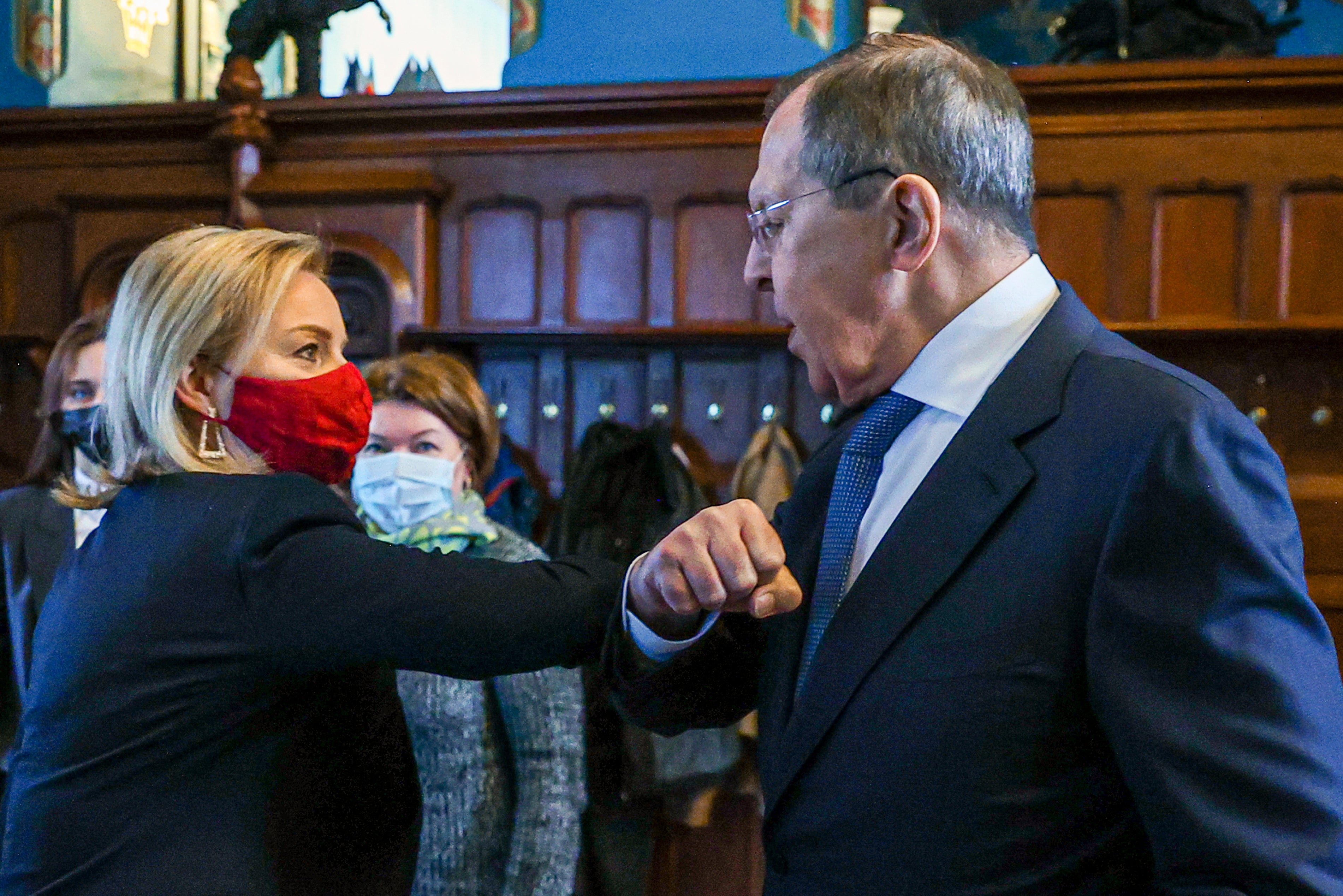
Liz Truss defended her decision to hold talks in Moscow with counterpart Sergei Lavrov, insisting she had to deliver a clear message to Russia.
The talks between the Foreign Secretary and Mr Lavrov last week were tense and culminated in an awkward press conference in which the Russian minister appeared to question her understanding of the crisis.
On Monday, Ms Truss said “of course, the Russians didn’t like what I had to say” but she had to deliver a message to Vladimir Putin’s government.
Ms Truss told reporters at the Foreign Office: “I went to Russia to deliver a very clear message, which is that it’s Russia who is the aggressor, they have 100,000 troops on the Ukrainian border and if they stage an incursion into Ukraine, that would have a damaging effect on the Russian people and the Russian government.
“Of course, the Russians didn’t like what I had to say but I say it nevertheless.
“And I want them to desist and I want them to be aware that there will be severe costs of an invasion.”

Mr Lavrov characterised the meeting as a “conversation between deaf and dumb”, claiming that Ms Truss did not listen to Russia’s position and the UK was unprepared for the talks.
Downing Street insisted that a breakthrough had not been expected at the talks and “no-one was under any illusions about what can be achieved in a single meeting”.
The Prime Minister’s official spokesman said: “It’s an important opportunity to present our understanding of the situation and to hear directly from the Russians on their position as well.
“We will continue always to explore all opportunities to take a diplomatic path and we stand ready to have further discussions with our Russian counterparts at all levels in the interest of de-escalating this crisis.
“I think no-one was under any illusions about what can be achieved in a single meeting.
“But it’s crucial that we take all these opportunities and continue to put forward this message about how further aggression will be responded to, so Russia can be in no doubt about our position and (the) position of our Nato allies.”







